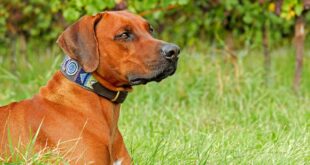[ad_1]

Humans be informed via imitation. From early classes in strolling and speaking to extra complex duties like running a automotive; we generally tend to look at our friends, then mimic their movements.
While canine have advanced to parrot a few of our facial expressions, one scientist suggests they is also the extra free-thinking species.

Laurie Santos, a cognitive psychologist at Yale University, demonstrated this principle on the 2018 Liberty Science Centre Genius Gala. Santos offered the target market with a field that includes a cylindrical care for at the facet. Before opening the lid, she jiggled the care for a couple of occasions. She repeated this procedure two times sooner than inviting a canine onto the level.
Once once more, she jiggled the care for and opened the field’s lid because the pooch watched carefully. Santos then invited the canine to open the field himself so as to retrieve a deal with positioned inside of. Instead of blindly following Santos’ lead, the canine sniffed the field sparsely sooner than popping open the lid together with his nostril, utterly ignoring the care for.

It seems the care for had no position in any respect in opening the field and was once merely there to end up Santos’ level – that people (and different primates) depend too closely on imitation. She believes maximum people would have adopted her lead in opening the field, jiggling the care for sooner than making an attempt to pop the lid.
“Sometimes we imitate too much; we are so prone to trust others that we kind of copy the things we see them doing, even when those things other people are doing might not be so smart,” Santos informed Live Science.
Dogs, however, don’t seem to be as more likely to blindly observe people or one every other.
“Dogs are really good at learning from us, but they might, in funny ways, be better at learning from us than we are from ourselves,” Santos stated. “They are less irrational in following our behavior than humans are.”

Comparing human and animal cognition patterns has allowed Santos to spot attention-grabbing variations in the best way we have a look at and engage with the sector.
“We have developed this cognition that can allow us to do these amazing things,” Santos stated. “But we’re not perfect; when you really look at our behavior, we have these ingrained tendencies that might be leading us astray all the time — I think that can be humbling.”
H/T to Live Science
[ad_2]


